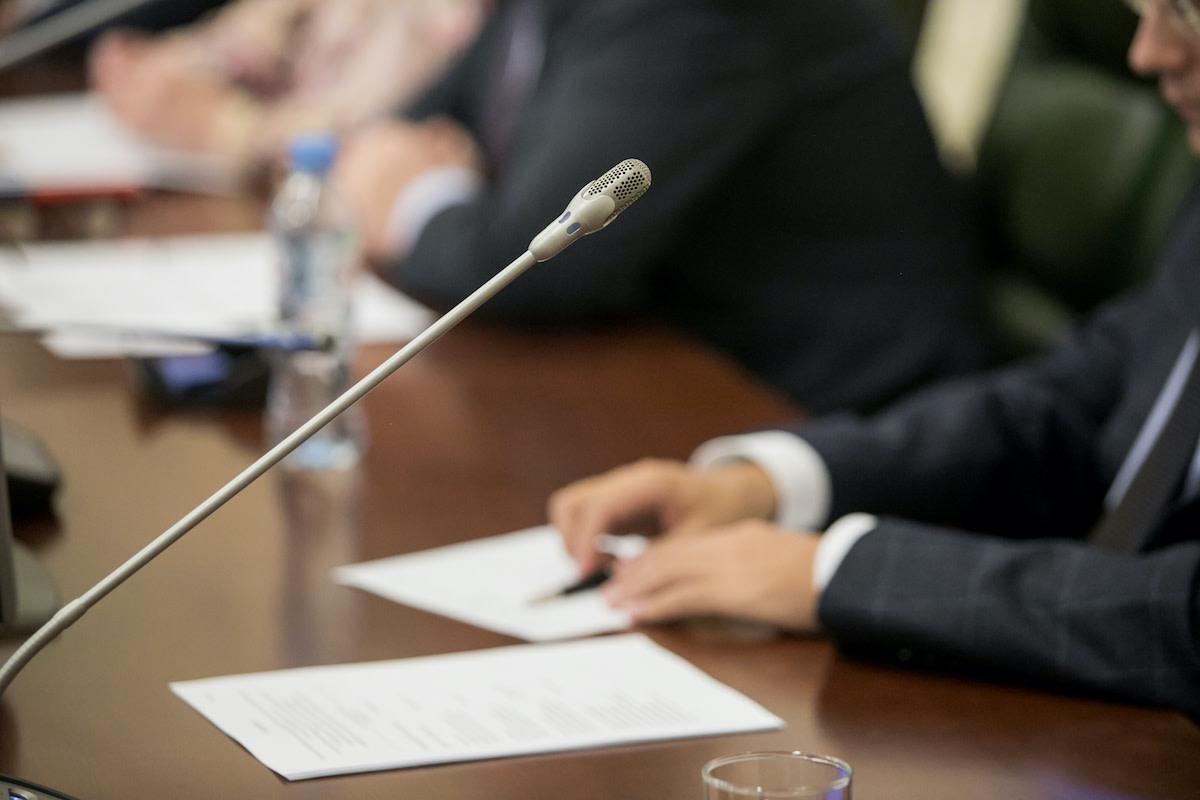Government 101: What Does the National Security Advisor Do?
Written by MasterClass
Last updated: Sep 12, 2022 • 4 min read
The United States national security advisor is a federal government official who advises the president on matters pertaining to national security policy.
Learn From the Best
What Is a National Security Advisor?
Since the Dwight Eisenhower administration, US presidents have employed a national security advisor to help guide their decision-making on matters of homeland security, national defense, and foreign affairs. The position's formal title is assistant to the president for national security affairs (or APNSA), but the term national security advisor is broadly used.
In addition to advising the president of the United States, the national security advisor is a member of the National Security Council. Working out of the White House, the NSC is formally led by the president or, when the president is away, the vice president.
As the assistant to the president for national security affairs, the national security advisor role is not a cabinet-level position. Therefore, it does not require Senate confirmation. Presidents are welcome to nominate someone they trust to the position, with little regard for the political considerations of Congress.
A Brief History of the Role of National Security Advisor
In 1947, the United States Congress passed the National Security Act, which established the National Security Council during President Harry Truman’s administration. The standalone position of national security advisor did not come about until 1953 when Robert Cutler took on the role under President Dwight Eisenhower.
Under John F. Kennedy, Eisenhower's successor, the national security advisor took on a more omnibus role, overseeing national security issues. Kennedy leaned heavily on his NSA, McGeorge Bundy, to coordinate the country's national security apparatus and produce a unified foreign policy. Other notable national security advisors include:
- Henry Kissinger: Kissinger served under Richard Nixon and used his position to advocate for the US to have a more expansive role in the Vietnam War. For part of this time, Kissinger also doubled as Nixon's secretary of state.
- Brent Scowcroft: Scrowcroft served under two presidents. He first took the post under Gerald Ford and then reprised it during the George H.W. Bush Administration.
- Zbigniew Brzezinski: Despite not being a formal cabinet official, Brzezinski was one of the most influential members of the executive branch during the Jimmy Carter Administration. Some foreign policy analysts believe Brzezinski's power exceeded even that of the US State Department.
- Colin Powell: Powell served in many roles in government and the military, including chairman of the joint chiefs of staff, and secretary of state. However, he was also one of six men who served as national security advisor under President Ronald Reagan. (Others included Robert McFarlane and John Poindexter.)
- Anthony Lake: Lake took office following the Cold War. He advised President Bill Clinton to invest heavily in free-market democracies to jumpstart capitalism in Eastern Europe.
- Condoleezza Rice: Rice began the George W. Bush Administration as national security advisor before advancing to secretary of state. She, along with Vice President Dick Cheney and Secretary of Defense Donald Rumsfeld, was a key architect of Bush's Iraq War strategy. Her NSA successor, Stephen Hadley, took a similar approach.
- James L. Jones Jr.: Jones was the first national security advisor under President Barack Obama, and on his watch, a reorganization of the national security apparatus took place. The Homeland Security Council (HSC) was merged with the existing National Security Council, creating a unified NSC staff that reported to the national security advisor.
- Robert O'Brien: O'Brien was the last of President Donald Trump's national security advisors. He held the office at a time when the US focused on Iran in the Middle East.
- Jake Sullivan: Jake Sullivan worked as a national security advisor to former Vice President Joe Biden in 2013 and 2014. In 2021, President Joe Bien named him the US’ national security advisor.
Duties and Responsibilities of the National Security Advisor
The US national security advisor works primarily out of Washington, DC, with offices in the White House and the Executive Office Building. They also make frequent visits to New York, which is home to the United Nations. Duties of the national security advisor include:
- Guiding the National Security Council: The NSC is formally chaired by the president or, in the president's absence, the vice president. But given the many political and policy-making demands on those two officials, the national security advisor often leads NSC meetings. Other members of the National Security Council include the secretary of state, secretary of the treasury, secretary of defense, the chairman of the joint chiefs of staff, the director of national intelligence, the director of the Central Intelligence Agency (CIA), the White House chief of staff, and the counsel to the president.
- Advising the president: The president relies on the NSA as an honest broker who will amass interagency information related to national security and then accurately convey it.
- Preparing a presidential daily briefing: The president receives a daily briefing about a wide array of matters concerning the federal government. National security information always receives a prominent place in this briefing, and it is the NSA's duty to amass this information and keep the president continually informed.
Learn More
Get the MasterClass Annual Membership for exclusive access to video lessons taught by the world’s best, including Paul Krugman, David Axelrod, Doris Kearns Goodwin, Karl Rove, Jane Goodall, and more.
